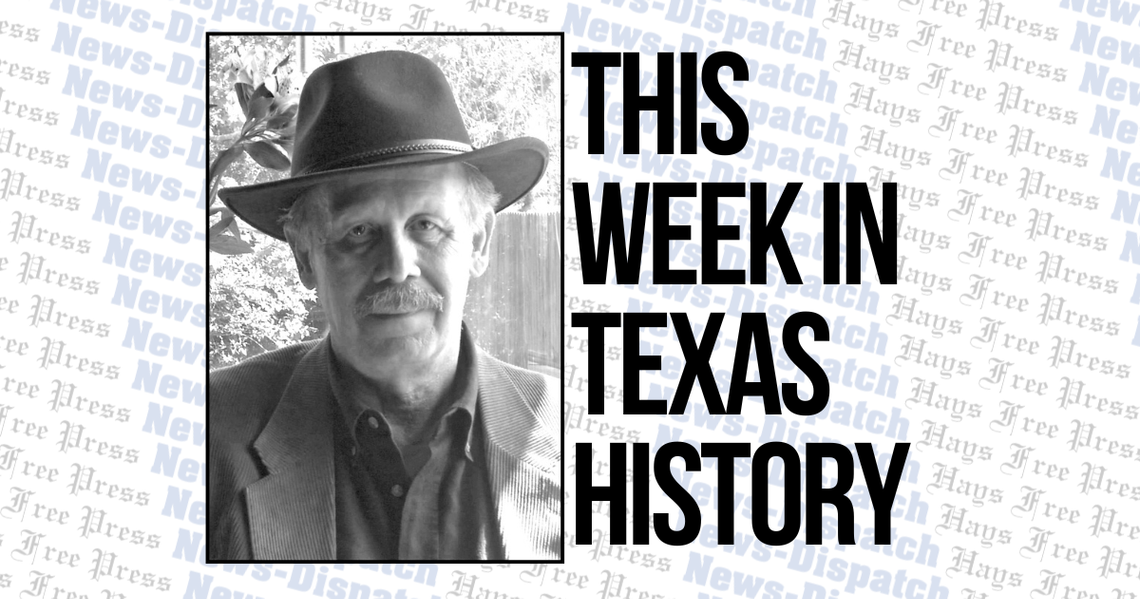Two hundred Texans itching for a fight answered the call of Gen. William Walker and sailed for Nicaragua on Sep. 17, 1856.
By the mid-1800’s, the South was caught between the proverbial rock and a hard place. To satisfy the increasing demand for cotton, planters from Texas to Virginia were in desperate need of more field hands. But a strong back sold at auction for as much as $1,500, a price only the wealthiest plantation owners could pay.
Texans, who had argued for years over the slavery issue, found themselves in the same leaky boat. Putting aside their differences, the rabid and the reasonable agreed on reopening the African slave trade.
But the illegal shipment of human cargo required a convenient way-station south of the border, and no such hospitable depot existed. That was where a pint-sized adventurer named William Walker came in.
Six inches shy of six feet and barely a hundred pounds soaking wet, the tiny Tennessean did not look the part of an American Napoleon. Yet Walker believed with all his heart that fate had cast him in that role.
Accompanied by 55 fervent followers, Walker intervened in the Nicaraguan civil war in the summer of 1855. Six months later, after a series of amazing victories, the self-commissioned General was the undisputed ruler of the tropical country.
By May 1856, the same month the United States recognized his regime, Texas editors and prominent personalities were singing Walker’s praises. At Galveston none other than David G. Burnet, first president of independent Texas, presided over a mass meeting to drum up support for the General, and ships bound for Nicaragua regularly stopped at the island to pick up eager passengers.
Walker did have his detractors, such as a North Texas newspaper which branded him a slaver rather than a liberator. Jumping to the defense of the General and resumption of the slave trade, the Galveston News expressed the prevailing opinion of the day: “If you agree to slavery, you must agree to the trade, for they are one. Those who are not for us must be against us. Those who deny slavery and the slave trade are against the South.”
In a June 1856 election, Nicaraguans chose Gen. Walker as their president, but the neighboring nations of Honduras, Guatemala, El Salvador and Costa Rica refused to abide by the surprising results. Backed by the British, whose navy blockaded Nicaraguan ports, the four countries launched a simultaneous invasion.
When word of Walker’s predicament reached Texas, young men by the score volunteered to risk their lives for the embattled cause. Two hundred, personally recruited by a top Walker lieutenant, sailed from New Orleans in September followed by 280 more in December.
Bolstered by the reinforcements, the outnumbered filibusters stood their ground and drove the enemy from Nicaragua. But a second invasion was imminent, and in January 1857 the Galveston News published a letter from a detachment called the “Texas Rangers” asking for additional aid.
Once again the response was swift and impressive. At San Antonio 104 men banded together under the banner “Alamo Texans.” At their departure for the faraway front, admiring residents gave the group a battle flag with the inscription “Remember you are Texans.” A Corpus Christi contingent was led by the mayor, who resigned from office in order to fight on the foreign shore.
The inevitable counterattack came in the winter of 1857. Although a predominantly Texan force of 400 whipped 3,000 Guatemalans, the deck was stacked against the Americans. Faced with the choice of extermination or exile, Walker and his surviving troops abandoned Nicaragua in May.
Texans made up the majority of the 300 stubborn souls that returned with the General in 1857 to recapture the country. This expedition was nipped in the bud by a U.S. naval officer, who took it up himself to evict his fellow countrymen from Nicaraguan soil.
The single-minded Walker tried to mount still another comeback, but the twin prospects of secession and civil war caused Texas and the rest of the South to lose interest. Refusing to quit while he was ahead, Walker set sail for the last time in 1860 with a boatload of drunks and misfits.
In the end, Walker traded his own life for the safety of the pitiful band. The obliging British made the necessary arrangements, including the cold-blooded surrender of the General to his Honduran executioners, and on Sep. 12, 1860 he was shot to death by a firing squad of barefoot peasants.
Of the estimated 3,000 Americans who fought with William Walker, as many as half hailed from the Lone Star State. Of the thousand that died from wounds, disease and inhumane treatment as prisoners, at least 400 were Texans, for whom Nicaragua turned out to be an Alamo without a San Jacinto.
“Murder Most Texan” is a must read for fans of true crime and Texas history. Order your autographed copy for $24.00 by mailing a check to Bartee Haile, P.O. Box 130011, Spring, TX 77393.











